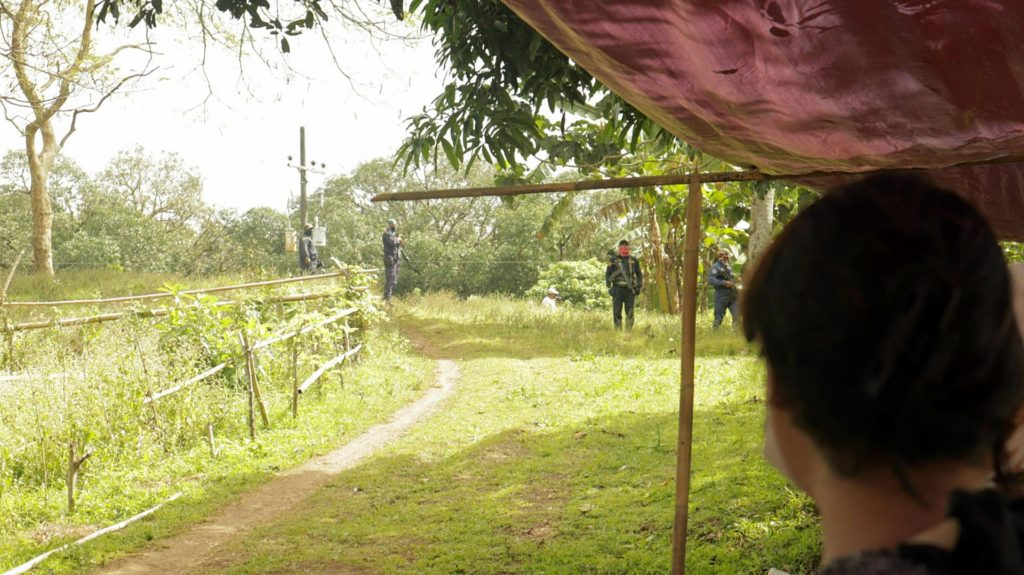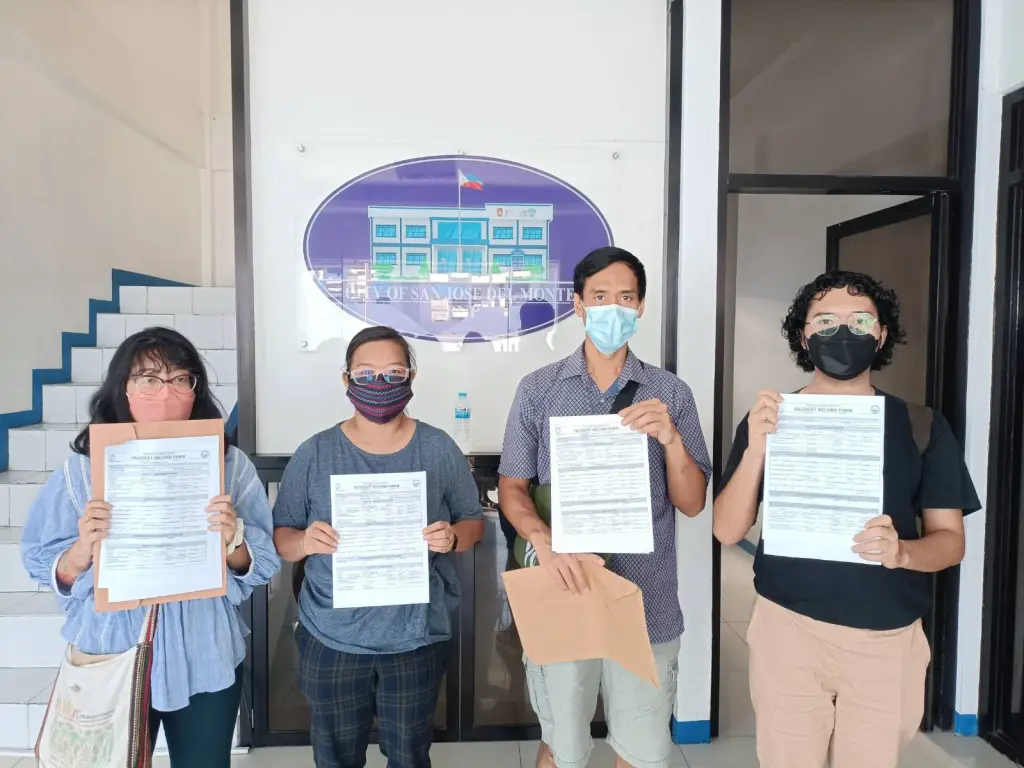BULACAN, PHILIPPINES — “GET DOWN! Stop using your phones!” a masked man ordered as they fired their guns. Over the next ten minutes, intermittent gunfire echoed across the village as people ran for cover, according to peasant advocates who lived to tell the story of how the community of Tungkong Mangga was terrorized last January 28, amid a land dispute with a real estate company.
The shooting came at the heels of consecutive demolitions of farmers’ homes. Last November 2021, private security guards stormed the village, cut off electrical lines, and confiscated farmers’ harvests and personal belongings. Within two weeks, a farmer who had filmed a home razing was beaten for doing so.
For almost three decades, Araneta Properties Inc. (API) has been reportedly threatening the farmers in San Jose del Monte City, Bulacan province in a bid to evict nearly 11,000 farmers.
Behind API is one of the Philippines’ oldest and most influential elite families – the Araneta clan. Greggy Araneta, the President and CEO of API, is also the brother-in-law of Bongbong Marcos Jr., who is seeking the presidency in the country’s national elections in May. Through Araneta’s father-in-law, former Philippine dictator President Ferdinand Marcos, Greggy amassed a fortune of USD3.89 billion in the 1980s via the conversion of government-owned entities into crony-led, private enterprises.
Farmers and various sectors fear that the political comeback of the Marcoses will result to even more human rights abuses to favour the interests of those in power and their cronies, such as what is happening in Tungkong Mangga.
In 2013, API’s security allegedly shut down a major road in Tungkong Mangga, altering travel routes for community members. Construction materials were blocked from entering the community, effectively shutting down the approved expansion of an elementary school.
In 2015, PANAP’s partner, Peasant Movement of the Philippines (KMP) and the Asian Peasant Coalition visited areas in San Jose del Monte. According to their fact-finding report, API’s owners, including billionaire CEO Gregorio “Greggy” Araneta and his family, were claiming at least 3,500 hectares of land. Some of the company’s proposed projects include the expansion of the giant mall SM San Jose del Monte and the contentious MRT-7 railway project.
On January 26, armed goons of API stormed the village and demolished four homes. When news of this latest demolition reached KMP, eight peasant advocates volunteered to visit Tungkong Mangga to investigate the complaints of farmers. On the morning of January 28, the fact-finding team made its way to the area.
They were met with the presence of armed gunmen; within an hour of the team’s arrival, 10 individuals with handguns and high-powered rifles entered Tungkong Mangga, wearing masks to conceal their faces. The gunmen took pictures of the farmers and volunteers and kept watch from afar.
Undeterred, two members of the fact-finding team proceeded to introduce themselves to a farming family whose home had been demolished. The goons charged, running towards a team member filming the interaction.
The gunshots began moments later.

A now-deleted Facebook video of the violence was recorded by a female farmer, who ran as the shooting took place. “Help us, they’re shooting at us. The children are distressed. They fired their guns and we don’t know now what’s happened inside,” she cried in Filipino.
Villagers reported that at least 30 goons were in Tungkong Mangga that day, including those who began the shootout in the morning. A member of the fact-finding team reported that the goons, in addition to repeatedly beating him, had taken his camera, wallet, and the rest of his personal belongings. According to villagers’ accounts, the goons even took relief goods meant for those whose homes had been demolished.
Tungkong Mangga’s farmers and their children are set to undergo psychosocial counselling to process the traumatising shootout.
Peasant groups in the Philippines expressed their condemnation of the incident and Araneta’s perpetuation of violence against farmers. The Union of Agricultural Workers – Philippines (UMA) chairperson Antonio Flores denounced the shooting as a threat to both food sovereignty and land reform.
“To steal land with the intention of converting its use to non-agricultural purposes […] is the height of criminality. On top of displacing peasants, this land grab curtails the country’s right to produce food,” said Flores.
Tungkong Mangga’s agricultural produce is popular in local agroeocology markets, as the farmers don’t use harmful pesticides to grow crops. The village’s namesake is its bountiful mangga, Philippine mangoes that line the area. However, villagers hold its local banana with the most regard; the saba banana of Tungkong Mangga is said to be one of the sweetest among local cultivars. Private interests threaten to get in the way of the decades-long relationship between the farmers and the land.
As the Aranetas and similar elite land grabber families continue to evict small communities, the farmers of Tungkong Mangga and their supporters remain steadfast in the struggle for genuine land reform. Last January 31, members of the fact-finding team filed a police report to detail the human rights abuses in the community.

“The harassment on [January 28] is only the latest in the decades-long struggle of farmers for land,” explained a team member after the filing. “As long as land is not owned by those whose sweat and blood is poured to bring food to our table, justice will never be served.” ##
For more information and updates on the farmers of Tungkong Mangga and San Jose del Monte, please visit Kilusang Magbubukid ng Pilipinas – KMP, and Alyansa ng Magbubukid sa Bulacan -AMB.
#NoLandNoLife Features discuss recent developments, events, and trends on land and resource grabbing and related human rights issues in the region as well as the factors and forces that drive it. Send us your feedback at nolandnolife@panap.net.








Discussion about this post